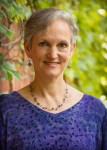Old books can learn new tricks. At least that’s what Rabbi Ruth H. Sohn is trying to prove as she draws messages of gender equality from the Torah.
These messages will be highlighted in “Bible Women: The Concert – Voices of our Mothers” which takes a traditionally male-dominated narrative and spins it by giving female figures of the Torah a voice, Sohn said. The concert, hosted by the UCLA Herb Alpert School of Music and the Lowell Milken Fund for American Jewish Music, will take place at Schoenberg Hall on Sunday. Before the concert, Sohn will lead a discussion about women featured in the Torah, such as Eve and Miriam. The concert offers a modern interpretation of their stories through close readings of the Torah paired with contemporary music styles like musical theater, gospel and jazz.
“I hope that people will … have their interest in the richness of the Bible and particularly women of the Bible really awakened, have more curiosity and be ready to look more closely at these narratives again, many of which we feel like we already know, but to look at them fresh for fresh inspiration, challenge and to learn from them,” Sohn said.
The first act will feature an abbreviated version of Elizabeth Swados’ oratorio “Bible Women,” sung by cantors and accompanied by a six-piece jazz ensemble. The Jewish tradition of midrash – making contemporary interpretations that elaborate on unanswered questions – was the basis for most of the stories, as most women in the Torah are spoken for by men rather than by themselves. Thus, personal emotions exhibited by the characters in “Bible Women” are drawn more from midrash rather than directly from the Torah, Cantor Lizzie Weiss said.
When interpreting a patriarchal text in a feminist manner, Sohn said she tries to separate the text from any pre-existing explanations. For example, Sohn said most people understand Eve to have been created from Adam’s rib, implying that woman was created from man. However, Sohn said the original Hebrew word used in the Torah, “sela,” means both “rib” and “side.” As a result, Sohn said Eve can be considered one counterpart of Adam rather than simply a derivative, subservient figure created from him.
“There’s a … Rabbinic view that the first human being was not male but was androgynous, both male and female, and that God split that being and took one side and made woman and took one side and made man,” Sohn said.
UCLA alumna and Cantor Lisa Peicott, who will be singing the voice of Eve, said Swado’s composition incorporates more than just the typical liturgical music of the Jewish synagogue, using gospel and upbeat ’50s doo-wop to offer more genres and contemporary language. The interpretations of the stories through modern genres make the music more accessible and refreshing to contemporary audiences who might be tired of classical liturgical music, Weiss said.
The concert features two songs from Eve’s perspective in order to modernize and add more dimension to her relationship with Adam, Peicott said. One song presents Adam as both Eve’s lover and friend, exploring their relationship after Eden. The song physicalizes Adam, describing his wavy hair and dove-like eyes, creating a more passionate portrayal of their relationship, presenting its humanity within the narrative, she said.
“Elizabeth Swados creates a love story between Adam and Eve in that even though they were banished she had found the man that she wanted to be with and that she was the first wife and that she’s content with that,” Peicott said. “All of a sudden we hear from Eve and what she thought of the whole situation and how she felt about Adam.”
Weiss will portray Esther, a biblical character who tricks the king into not killing Jewish people. In “Bible Women: The Concert – Voices of our Mothers” Weiss sings a song titled “Esther the Invincible,” using jazz influences with an intense, staccato quality. The music emphasizes her tenacity through its sharp beats, Weiss said. For Weiss, the most empowering part of the process has been to give Esther a voice as a modern hero who stands up for the rights of her people by putting her life on the line through her act of deception.
Ultimately, the aim of the concert is to allow marginalized communities to represent themselves as most female figures in the Torah do not have autonomy, Weiss said. As more and more cantors have incorporated their individual vocal training styles in their religious practices, she hopes the event will get people inspired to reexamine voices in the Torah.
“I just hope (the concert) wakes people up (and) gets people to really look deeper into people’s stories and … (is) able … to continue to give voices to people who are underrepresented or disenfranchised,” Weiss said.
